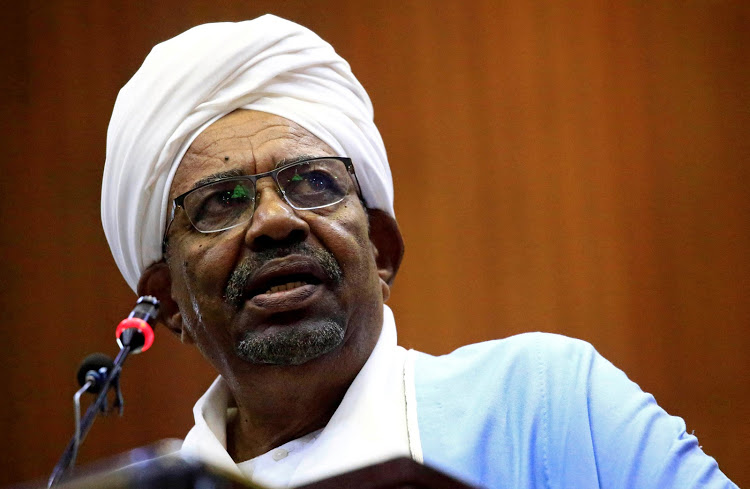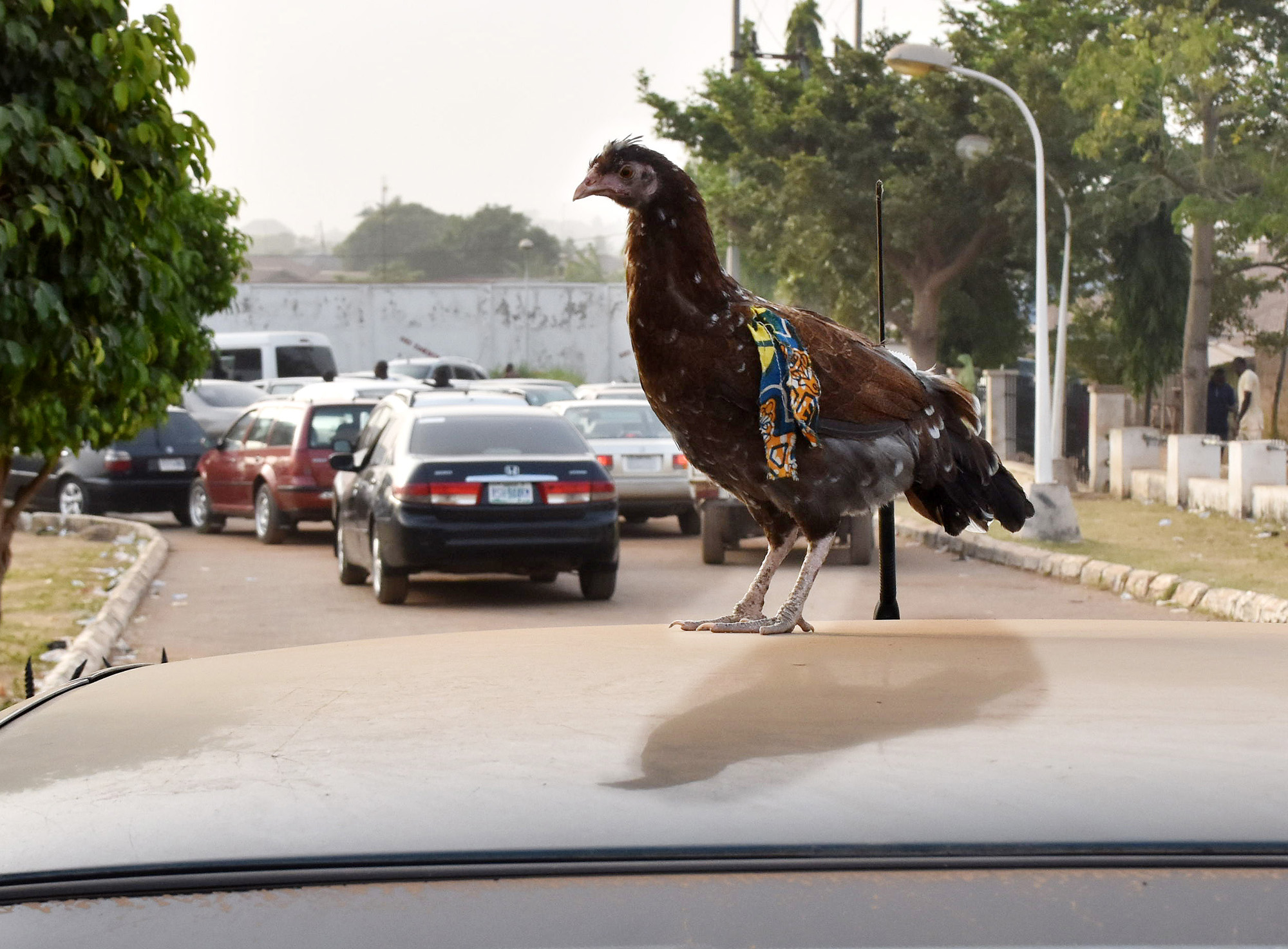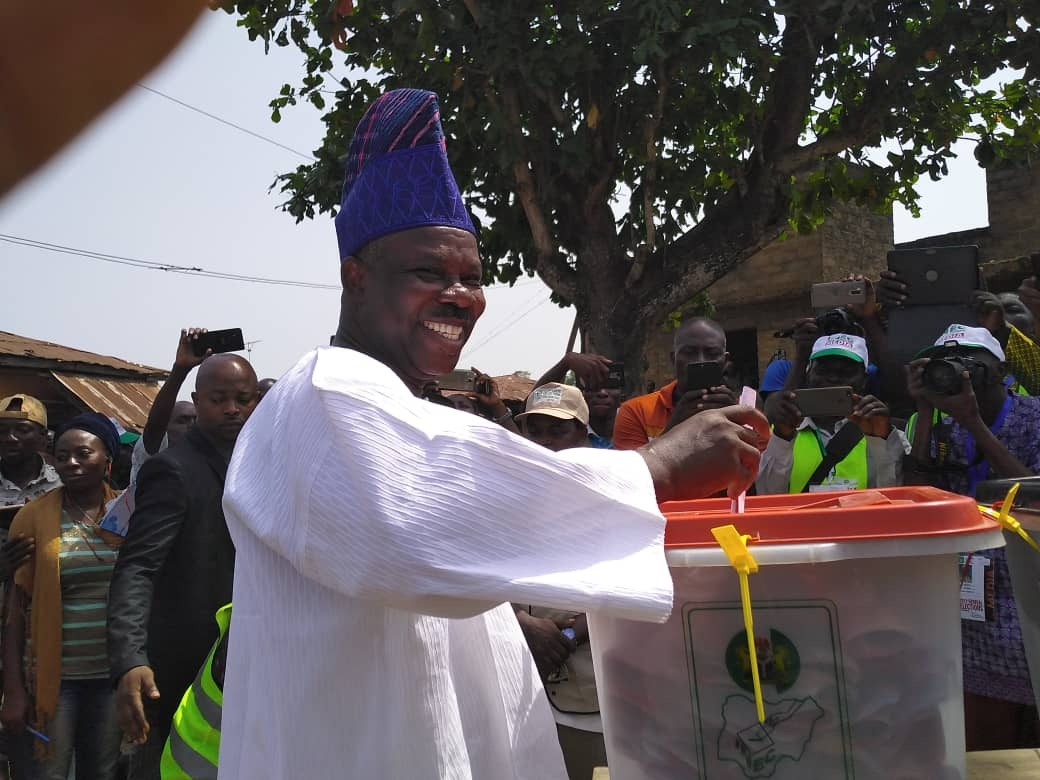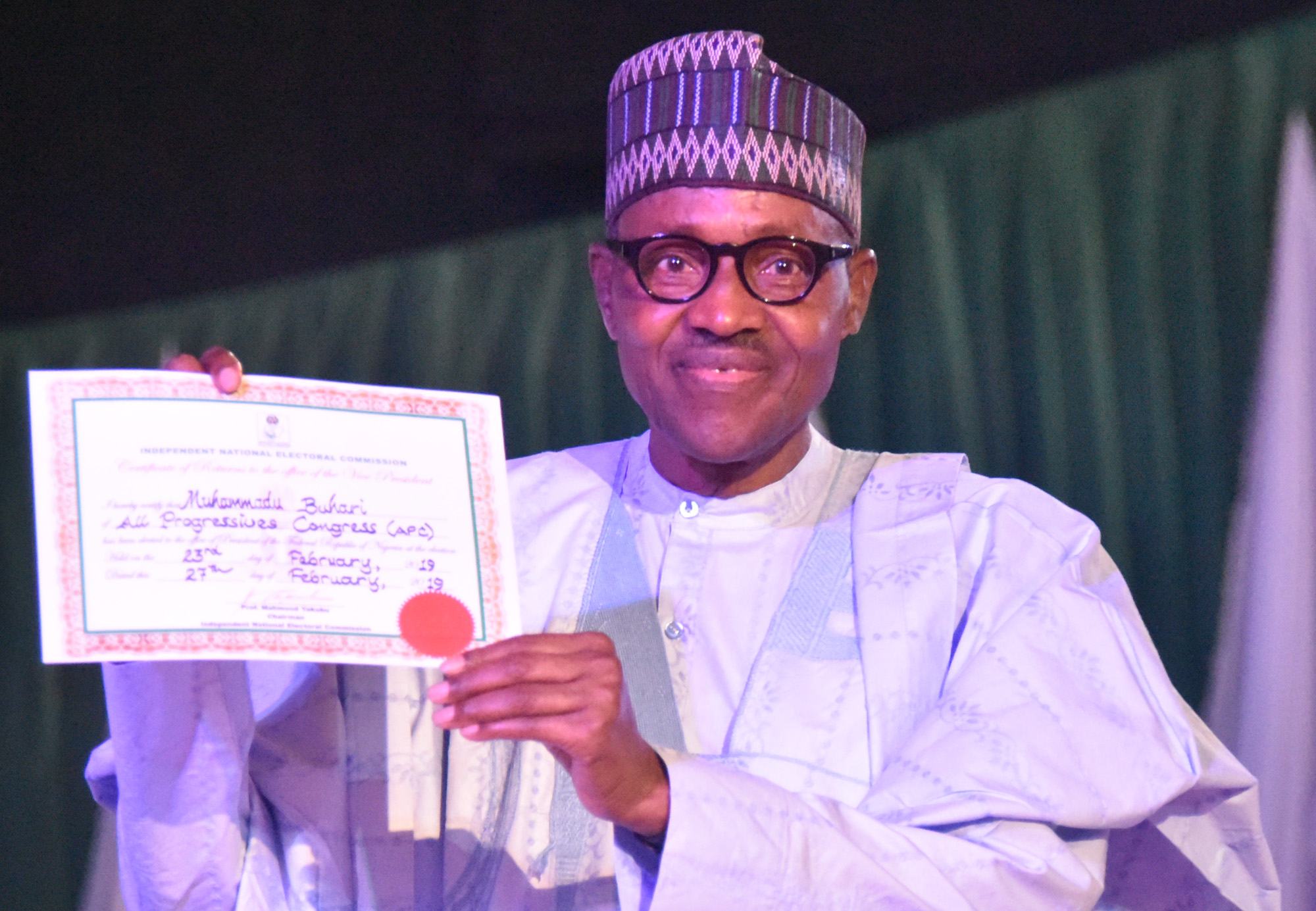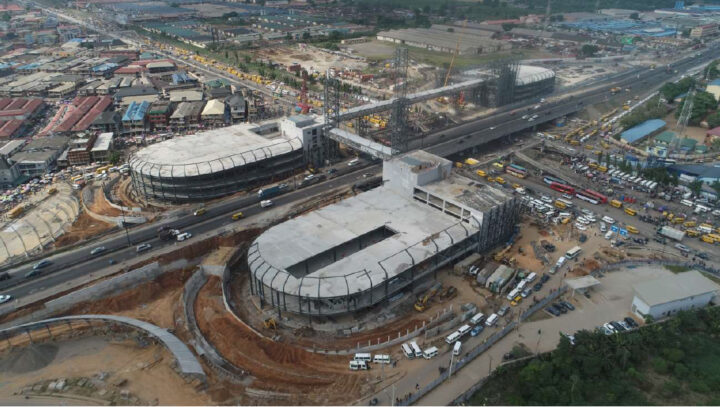FILE PHOTO: Sudanese President Omar al-Bashir delivers a speech inside Parliament in Khartoum, Sudan April 1, 2019. REUTERS/Mohamed Nureldin Abdallah/File Photo
Recent events beyond our borders in Nigeria strongly illustrated the fundamental transience of the potency of power, especially when it is misapplied. Although those happenings were offshore, it is worth our focus here because the morals therefrom have universal application. One universal moral that showed up, for instance, is that power has legitimacy only when it genuinely issues from the people.
In other words, a power broker is only as secure as the voluntary mandate conferred on him by the ordinary folk he purports to represent, not by designing and implanting structures of coercion for self-preservation. Also, when power slips away, an erstwhile broker could become a victim of his own weaponisation of that essentially fleeting privilege.
Ask former President Omar al-Bashir of Sudan, and he would perhaps wish now that he had used power in connecting with his people’s struggles and aspirations. The fact of history is, he did not, and he is now out in the cold after some 30 years at the helm. His official residence used to be in a large compound in the country’s capital, Khartoum, which also houses the Defence ministry and Army headquarters that were the structures of his self-preservation in power. But it was the very military that turned on the strongman penultimate Thursday and dug him out of the stronghold, after he had fiercely faced down street protests by the Sudanese people that broke out in December 2018.
Nota Bene: We should be particularly interested in the on-goings in Sudan here in Nigeria because of the country’s about 30million population, more than 5million are said to be of Nigerian origin.
Advertisement
Barely a week before al-Bashir’s ouster, octogenarian President Abdelaziz Bouteflika of Algeria was forced to step down from power after 20 years, following heady protests by his country people who would no longer – not even by a whiff – have the old order. Before Bouteflika tumbled out of power at 82 years, he had assayed to seek another term in his country’s imminent elections, even though he is widely known to have debilitating health challenges and was rarely seen in public since he suffered a stroke in 2013. Yet he didn’t even quit because he was conscience stricken by the costs of the public’s relentless demand for his ouster, but rather because the Algerian military that had been the mainstay of his power pulled their support and pitched in with the people.
In both Sudan and Algeria, the trigger of the uprisings was the worsening living conditions of the people, which respective ex-leader apparently had lost touch with. The protests in Sudan, spearheaded by the Sudanese Professionals Association (SPA) along with some other civil society groups, were originally sparked by rising costs of living but later evolved into a pressure campaign to flush al-Bashir out of power. One moral here is: there is a baseline of people’s tolerance and accommodation of a leadership that presides over their progressive impoverishment and is yet out of touch with that reality. Government is best secure when it apprehends and works with the daily reality of its people.
Like all strongmen, al-Bashir, at 75 years of age and after 30 years in power, did not give in to the protesters as the Sudanese military, before pulling their loyalty, repeatedly batted them down on the streets. Official accounts cited 38 people dead in the protests since December, while non-governmental sources said the casualty figure was higher. In February, it had looked as though the ex-Sudanese president would step down, but he instead declared a state of national emergency. The military were his coercive instrument for that emergency until the people’s resolve flipped the tide of their loyalty and they turned on him in a coup.
Advertisement
Reports as last week were that the former leader has been relocated from house arrest to solitary confinement in Kober maximum security prison in Khartoum – the same facility where he confined many who challenged his rule over the last 30 years. Under his reign, political dissidents and opposition figures often ended up at the feared Kober prison, also the site of some of the country’s most notorious hangings. Actually, many of those who had taken to the streets since December to demand his ouster were reportedly being held in a special wing for political prisoners run by the dreaded National Intelligence and Security Service (NISS). Pending their release as already promised by the new regime, they are now the ex-president’s neighbours in incarceration.
Al-Bashir got to where he is now by travelling the familiar road of manipulative self-perpetuation in power, which really isn’t uncommon to leadership on the African continent. His advent in power was by way of a military coup in 1989 that ousted the democratically elected government of Prime Minister Sadiq al-Mahdi. But he had since then stood elections in which he was controversially declared winner – the last of these being in 2015. I happened to be in Khartoum during the April 2015 presidential poll and recall that the electoral field was tightly skewed such that his runaway victory was inevitable. All major opposition parties that could have offered real challenge to al-Bashir boycotted that election, saying it was incorrigibly rigged towards a predetermined end of his victory
Out of 88 registered political parties in the country at that time, only five fielded candidates against al-Bashir of the National Congress Party, although these were complemented by 10 Independents to make 16 presidential candidates in all. But that was just a mere number. The reality was an extremely fragile challenge to al-Bashir’s incumbency. Besides the political infirmity of Independents, who formed the majority of opposition candidates, the few participating parties were all splinter groups from the major opposition parties, which shunned the poll because the circumstances inhibited healthy rivalry. War was underway in Darfur, South Kordofan and Blue Nile states and state machinery was under a stranglehold by the ruling regime. Hence the opposition parties canvassed a postponement of the poll and wanted a transitional government to oversee the drafting of a new Constitution and organise free and fair elections. The regime, of course, bucked those demands and al-Bashir rollercoastered to a landslide win in the poll to prolong his stay in power.
Perhaps he had looked forward to another run in 2020. But besides the 2009 indictment of the International Criminal Court (ICC) hanging over his head, al-Bashir must have realised now that orchestrated victories do not necessarily translate to legitimate power that issues from voluntary mandate of the people. That must be why for much of the time, he needed the coercive weigh-in of the Sudanese military to exercise control over the people until the military buckled to the people’s will and turned on him. The moral here is: leaders must realise where genuine power base lies – that is, with the people – and should assiduously cultivate same rather than rely on the intervention of coercive structures.
Advertisement
But there are many power potentates in Africa fashioned after the al-Bashir model. A recent report by the BBC World News showed that of the Top Ten longest ruling non-royals in the world, seven are from Africa namely Equatorial Guinea’s Nguema Mbasogo (39 years in power), Cameroon’s Paul Biya (36), Uganda’s Yoweri Museveni (33), Sudan’s al-Bashir (29), Chad’s Idriss Derby (28), Eritrea’s Isaias Afwerki (25) and Congo-Brazzaville’s Dennis Sassou Nguesso (21). Even then, 74-year-old Museveni is actively prospecting for life presidency, with his country’s supreme court only last week tearing up the 75-year constitutional age limit for that office and clearing the way for him to seek a sixth term in 2021. Egypt is as well presently debating a review of existing term limit in her laws as would enable President Abdel Fatah el-Sisi to remain in power until 2013.
Nigeria luckily has an effective term limit to power, but yet must be on guard against coercive usurpations even within the statutory time frame.
Please join me on kayodeidowu.blogspot.be for conversation.
Advertisement
Views expressed by contributors are strictly personal and not of TheCable.

